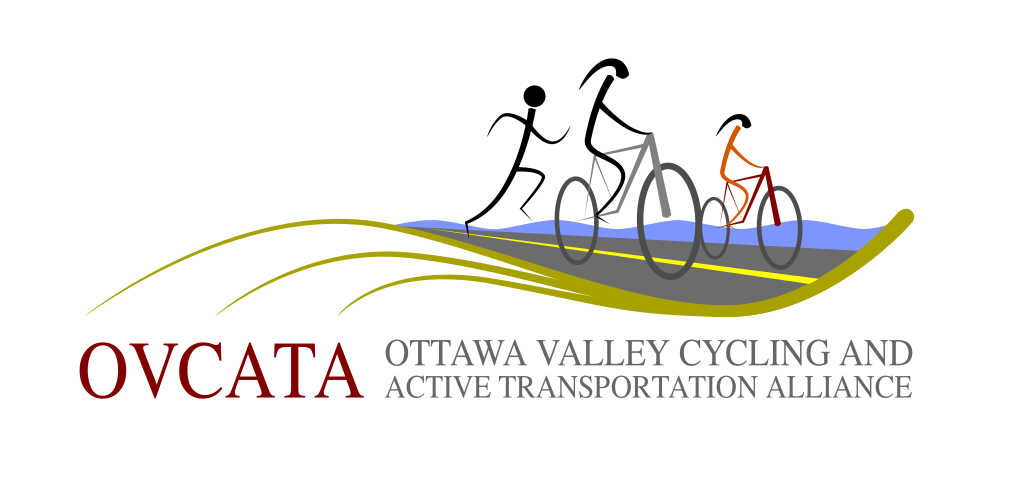Cycling fatalities - investing in road safety can produce many benefits
by Ish Theilheimer
One June 28, outside Perth, Ontario, Chris Smith, 49, was killed while biking to work, as he did every day, on Highway 7. As is so often the case in these tragedies, the focus seemed to be on the rider and why in the world he'd want to ride such a busy highway.
This is like looking the wrong way through a telescope.
By biking to work, Chris Smith was doing a lot of good for our community, our province, and our world. First of all, he was exercising his legal right to ride on all Ontario roads, except for freeways and a few other exceptions. Like a tractor, a farm wagon or any other slow-moving vehicle, he had a right to be there, and drivers had a legal obligation to slow down behind him until it was safe to pass.
By biking to work rather than driving, Chris Smith was saving the province and his municipality money. Fewer cars on the roads mean roads last longer. And more people on bikes instead of cars means a healthier population, with lower rates of heart disease, diabetes and other serious ailments that require expensive treatment, paid for with tax dollars.
He was also saving a lot of money personally. Car travel and parking are really expensive for low- and middle-income people and a burden for everyone. It's a lot cheaper to travel by bike than by car.
It goes without saying, as well, that Chris Smith added no pollutants to the air and made no contribution to climate change. He also set a positive example for his community by doing so, inspiring lots of others, adults and youth, to ride.
His death could put a real chill on that, and with some reason. Survey after survey shows that people like to ride and that more of them would if they felt safe doing it. Simply having the law on one one's side isn't enough. Cyclists need infrastructure - paved shoulders, routes, signage, signals - to be safe.
Cycling has become mainstream. People want to ride, and people also want to do what they can to solve climate change. Many people would like to save the expense and stress of driving or even taking public transit. They can't, however, because the infrastructure is just not there to make them safe.
Ish Theilheimer is co-chair of OVCATA. He lives and cycles near Golden Lake and Killaloe.
The Province of Ontario recently announced a $50 million fund for cycling infrastructure under its Climate Change Action Plan. It is a good thing the provincial government is beginning to recognize the need, but this amount is a drop in the bucket in terms of protecting the lives of people like Chris Smith who bike to work or school.
What is needed is a commitment to hard-shoulder all provincial highways, with some sort of priorities for which get treated first. Municipalities and counties should make the same kind of commitment. Hard shoulders not only save cyclists lives, they reduce motor vehicle and pedestrian accidents. Several studies and Ontario counties have found that they pay for themselves in the long run in reduced maintenance.
Lower-cost measures can also help protect people like Chris Smith. Public education aimed at both drivers and cyclists, will make our roads safer. Signage alerting drivers to the presence of cyclists will help.
There is a "critical mass" element to encouraging cycling. Once enough people are riding, drivers become more aware and more people are encouraged to get out of their cars and onto bikes. For the public to really reap the possible rewards, provincial, county and municipal governments need to make the investments that have been proven to save lives and money.
